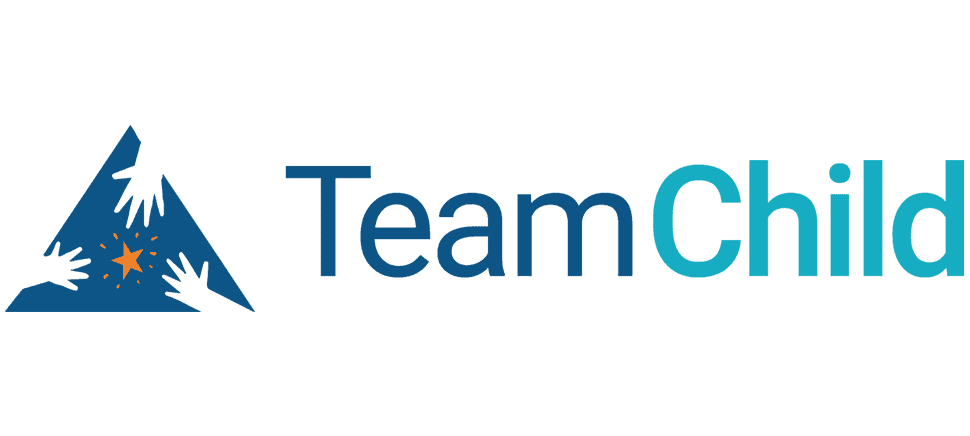Developmentally Appropriate Responses Change Lives
Young people change so much as they move through adolescence. What you know and understand about yourself and the world can be vastly different at age 12 than at age 24. This developmental stage is filled with so much potential – literal potential as young people’s brains grow, neurons connect, and their perspective expands. But it’s also a time where making mistakes is part of learning. This is why TeamChild worked so hard to support ESHB 1394 that was signed into law on April 20, 2023 that supports a developmentally appropriate response to juvenile sexual offending behavior.
Our culture often has a strong negative response when anyone mentions sexually offending behavior, which can lead to bad policy making. But the changes this bill supports are guided by comprehensive nationwide research about what young people need when they have sexually offending behavior to make sure that they are meaningfully rehabilitated, and what interventions actually create more harm. Youth in the juvenile legal system due to sexual offenses have been better researched than almost any other youth involved in illegal activity[1]. Comprehensive studies of thousands of youth demonstrate that this group of young people have the lowest recidivism rates of any youth in the juvenile legal system, finding that 97% of youth who were found guilty of a sexual offense did not commit new sex crimes[2].
Yet, the system’s response to this crime has caused significant harm to offenders, as well as victims, family members, and the whole community. Sex offender registration has caused much of this harm, resulting in collateral consequences impacting housing, education, employment, mental health, and community safety. Research reveals that youth who have to register are:
- four times more likely to have actively attempted suicide;
- five times more likely to be approached by an adult for sex; and
- twice as likely to be the victim of sexual assault by an adult.
Registration results in children and their entire families losing their housing, exacerbating the homeless crisis for not just the youth with offending behavior, but often for other children in the family. Youth on the registry struggle to complete school, find jobs, and transition to independence as young adults. The research also revealed that registration does nothing to improve community safety or prevent sexual abuse[3]. ESHB 1394 ends sex offender registration for the majority of youth with sexually offending behaviors.
Treatment is the key to low recidivism. ESHB 1394 expands opportunities for treatment by increasing the professional pool of treatment providers and allowing for additional evidence-based treatments to be developed for youth in Washington state. Youth adjudicated with sexually offending behaviors will also continue to receive other responses from the juvenile legal system, like evaluation, probation, the two-year intensive treatment program already available for many youth, school notification, and incarceration.
Special thanks to the partners that worked with us on getting this bill to the Governor’s desk. Public defenders from across the state, especially Katherine Hurley at King County DPD and Larry Jefferson of the Office of Public Defense, were significant in raising this issue and amplifying the need to mitigate the harms done to so many young people. Prosecuting attorneys came to the table and worked with us to reach a shared agreement on the language. Other advocates, including the ACLU and the Center for Children and Youth Justice (CCYJ) contributed to the effort. Individuals and families with lived experience shared their support from Washington Voices. We’d like to thank all the legislators who supported this effort, especially the legislative champions Representative Tana Senn and Senator Noel Frame. They are two of the most skilled, compassionate, and tireless lawmakers and we were incredibly lucky to have their leadership to see this effort through.
This is one of the most consequential successes we had in the legislature this year. It will change the lives of thousands of young people. The youth who have sexually offending behaviors are often traumatized youth reacting to their own abuse; impulsive and immature youth who need guidance and direction; youth imitating what they’ve seen in media and community; youth with co-occurring mental health and developmental disabilities; youth who don’t understand the law; youth responding to peer pressure; and youth who are a lot like all the other youth in our state – growing, learning, and making mistakes. With the passage of this new law, they will have access to evidence-based interventions and not be harmed by ineffective practices that have not held up under the scrutiny of research.
[1] Caldwell, Quantifying the Decline in Juvenile Sexual Recidivism, 22(4) Psychology, Public Policy and Law 414-426 (2016). https://doi.org/10/1037/law0000094.
[2] Letourneau, Bandyopadhyay, Sinha & Armstrong, The Influence of Sex Offender Registration on Juvenile Sexual Recidivism, 20 Criminal Justice Policy Review, 136-153 (2009).
[3] Letourneau, E. J., Bandyopadhyay, D., Sinha, D., & Armstrong, K. S. (2009b). The influence of sex offend- er registration on juvenile sexual recidivism. Criminal Justice Policy Review, 20, 136-153; Caldwell, M. F., & Dickinson, B. A. (2009). Sex offender registration and recidivism risk in juvenile sex offenders. Behavioral Sciences & the Law, 27, 941-956; Caldwell, M., Ziem- ke, M. H., & Vitacco, M. J. (2008). An examination of the Sex Offender Registration and Notification Act as applied to juveniles. Psychology, Public Policy, and Law, 14, 89-114



